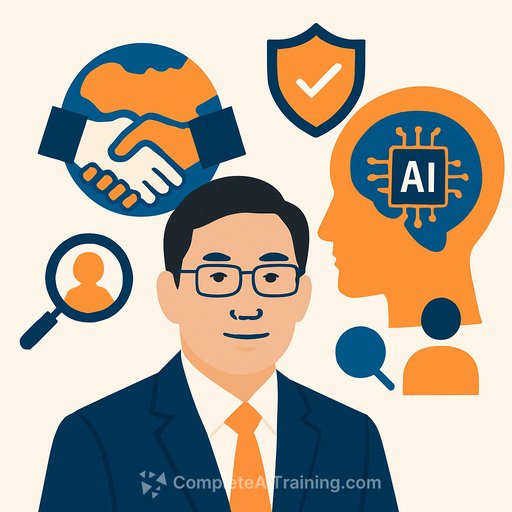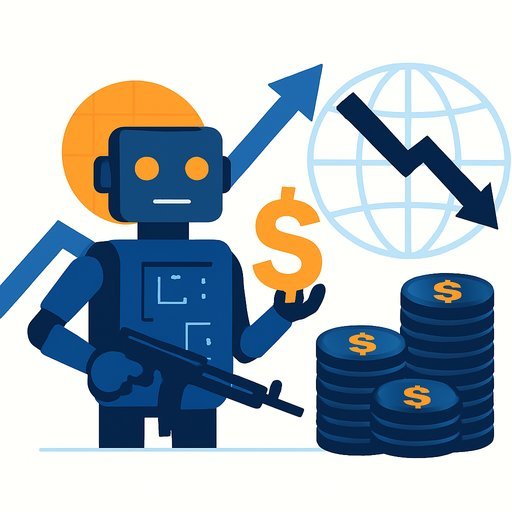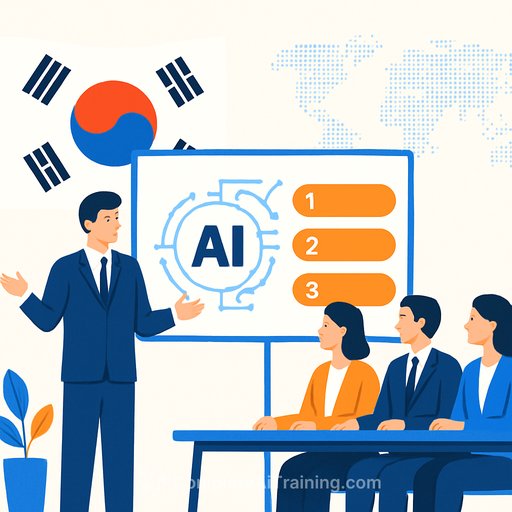How AI Is Transforming Singapore: Strategy, Trust, and Execution
Singapore is moving fast on AI with a clear national agenda and strong public-private collaboration. The results show up in global benchmarks: the Global AI Index ranks Singapore third worldwide for innovation, investment, and implementation, behind the United States and China. Source.
The lesson for executives is simple: outcomes follow from aligned incentives, steady investment, and disciplined execution. The focus now is turning ambition into repeatable value-safely, transparently, and at scale.
Build With Responsibility
AI should improve lives as much as it improves margins. Think environmental modeling that helps restore ecosystems and intelligent mobility that reduces accidents. Progress sticks when it earns trust.
A responsible approach means clear guardrails, explainability, and measurable social impact. Treat this as responsible reinvention: make ethics, transparency, and inclusion part of the operating model-not an add-on.
- Set explicit principles: transparency, fairness, privacy-by-design, human oversight.
- Tie every AI use case to safety, sustainability, or service quality KPIs-not just cost.
- Publish model documentation and risk ratings so stakeholders know how systems work.
Where AI Is Already Working
Public agencies are deploying AI to modernize citizen services. Some are training large language models locally to handle sensitive data, personalize interactions, and strengthen protection. This fits the Smart Nation mission to improve energy, water, waste, mobility, and urban planning. Learn more about the Smart Nation program at Smart Nation Singapore.
Across industries, value is tangible. AI-driven monitoring in factories is flagging health risks before they escalate, improving worker safety. In insurance, a GenAI assistant for claims adjusters has lifted productivity by 70%, speeding decisions while improving the tone and empathy of communications during critical events.
What Executives Should Do Now
- Prioritize 3-5 use cases with clear ROI and risk profiles. Examples: customer service triage, preventive maintenance, fraud triage, document intake.
- Decide build, buy, or partner per use case. Keep data-sensitive models in-country; use hosted services for lower-risk workloads.
- Stand up an AI council (legal, risk, data, security, business) to approve use cases, review risks, and set standards.
- Instrument outcomes: cycle time, error rate, NPS, cost to serve, safety incidents, MTTR, and carbon impact.
- Adopt a portfolio approach: pilots with fast feedback, production-grade platforms for scale, and sunset criteria for underperformers.
The Talent Imperative
The bottleneck is talent: data scientists, ML engineers, product managers, and AI risk specialists. Singapore's edge is its ability to blend global expertise with local execution-through partnerships, targeted hiring, and internal upskilling at scale.
Build a training stack that covers fundamentals, tools, governance, and domain-specific workflows. For structured paths and certifications that map to roles and outcomes, see AI courses by job and popular AI certifications.
Trust by Design
Trust makes or breaks adoption. Clients and citizens want to see the logic, rules, and models behind decisions. The move to in-country platforms-such as AIOps for sensitive operational data-adds confidence and meets regulatory expectations.
- Use model cards and data sheets for every significant model. Track provenance and intended use.
- Enable audit trails for prompts, outputs, and overrides. Log decisions and rationale.
- Adopt red-teaming, bias testing, and secure SDLC for AI features.
- Segment sensitive data, enforce least privilege, and encrypt at rest and in transit.
- Publish procurement and vendor standards covering explainability, security, and SLAs.
Localizing Global Wins
Bring proven patterns into Singapore, adapt for policy and culture, and keep sensitive data within borders. An in-country AIOps platform is a practical first step: it reduces downtime, improves observability, and respects data residency while enabling faster incident response.
As use cases scale, keep governance lightweight but decisive. The shorter the loop between discovery, risk review, deployment, and monitoring, the faster the measurable gains.
Humanising AI: The Next Frontier
Humanoid helpers and wearable AI are moving from showcases to practical roles across care, hospitality, logistics, and public services. The win comes from reducing friction in everyday interactions-hands-free assistance, context-aware support, and safer environments.
- Design for augmentation, not full automation. Keep people in control.
- Make privacy visible: indicators, consent, and local processing where feasible.
- Measure experience quality, not just throughput-clarity, empathy, and safety.
Singapore's Next Leap
The country already has world-class cloud and connectivity. The next step is deeper data security, stronger transparency standards, and scaled talent pipelines to support ethical and sustainable AI growth.
For leadership teams, the path is clear: pick focused use cases, invest in people, enforce governance, and build trust from day one. That is how pilots become systems-and how AI compounds value across the economy.
Your membership also unlocks:






